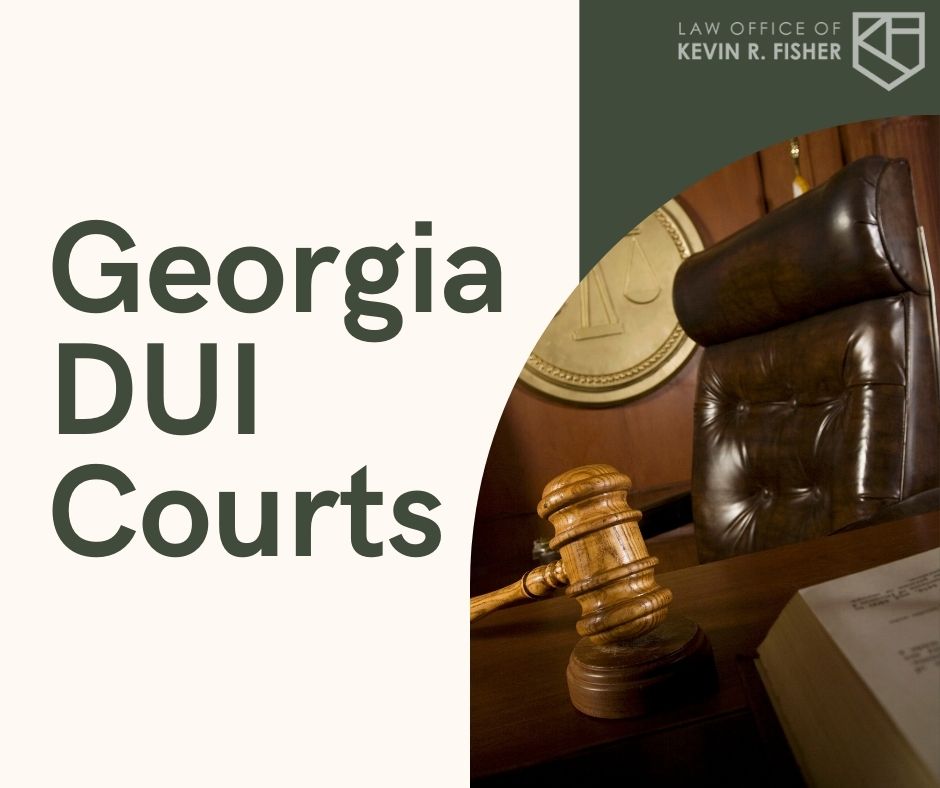DUI Courts “are designed to deal with the underlying issue of alcohol abuse resulting from operation of a vehicle while impaired.” O.C.G.A. § 15-1-19. They are for repeat offenders. They provide treatment and support while a person deals with any issues they have that may have led to their DUI charges. While all of this sounds great in theory, you should never commit to a DUI Court program without serious thought. You should also be sure to talk to an attorney who has worked with DUI Courts in the past. Keep reading to learn more about these programs and what you can expect if you decide to sign up for one.
How do people get into DUI Court Programs?
I should first state that different counties run their programs differently. The law providing for the establishment of DUI Courts, O.C.G.A. § 15-1-19, states that courts may refer defendants to a DUI Court program:
- “Before the entry of the sentence, if the prosecuting attorney consents,
- As part of a sentence in a case, or
- Upon consideration of a petition to revoke probation.”
If DUI Court participation is ordered before the entry of the sentence, if a person fails to complete the program successfully, they will be required to go before the judge again for sentencing. At that point, they are facing the likelihood of jail time for their DUI offense and any other offenses that occurred at the same time. If DUI Court participation is ordered after a conviction as part of a person’s sentence, it is a condition of their probation. That means that if a person fails to complete the DUI Court Program, the court can revoke their probation, likely resulting in jail time.
Many jurisdictions state that DUI Court participation is “voluntary.” While this is technically true, many of those same jurisdictions make jail time for DUI offenses so lengthy that reluctant defendants may feel forced to participate despite their misgivings.
Who can participate in a DUI Court?
Different counties set their own rules for who is eligible for DUI Courts. To participate in a DUI Court in a particular county, a person must be a resident of that county. That makes sense because DUI Court requires a lot of appointments, including court appearances, individual and group therapy sessions, and meetings with probation. These would be even more burdensome if a person had to travel a long distance to make these appointments.
Most counties require a potential participant to be a repeat DUI offender, so they must have had at least one prior DUI before applying for the program.
Since programs usually last more than one year, a person must have sufficient charges to support a probation sentence of at least two years. This is not an exceptionally high bar, since most people charged with DUI typically also have some sort of traffic charge in addition to their DUI charge.
Some jurisdictions may have additional requirements. For example, Forsyth County limits eligibility to people who had a high blood alcohol content at the time of arrest. It prohibits people who have been charged with Distribution of Illegal Drugs, and people with certain violent offenses.
If you have questions about your eligibility for a DUI Court, please give me a call.
Where are DUI Courts available in Georgia?
DUI Courts are far more prevalent in more populated areas of the state. As of 2021, here is a list of DUI Court Programs around the state of Georgia:
- Athens-Clarke County
- Bryan County
- Burke County
- Chatham County
- Cherokee County
- Clayton County
- Cobb County
- Coweta County

- DeKalb County
- Douglas County
- Evans County
- Fayette County
- Forsyth County
- Fulton County
- Gwinnett County
- Hall County
- Henry County
- Liberty County
- Long County
- Lowndes County
- McIntosh County
- Richmond County
- Rockdale County
- Tattnall County
- Tift County
- Troup County
Click here for a map: https://cacj.georgia.gov/media/2286/download
Who is part of a DUI Court Team?
Numerous people make up a DUI Court “team.” These include the judge, a prosecutor, a defense attorney (sometimes from the public defender’s office), a DUI Court Administrator and/or Case Manager, a probation officer, and the treatment team.
What’s it like to participate in a DUI Court Program?
Participants in a DUI Court Program will have certain things to do to progress in the program. While specific requirements will depend on the particular court, here are some examples:
- Treatment (may include group, family, and/or individual counseling),
- Random drug/alcohol screening,
- Random home visits,
- Community service,
- AA/NA meetings, and
- Attending DUI court sessions as directed.
Some programs require participants to show that they are gainfully employed, in school, or currently looking for employment. They may also require participants to show that they are meeting all of their other obligations, such as child support.
During a DUI Court Program, participants work their way through several “phases.” They are placed under fairly strict supervision in the early phases of a DUI Court Program, with frequent check-ins with court staff and multiple counseling sessions per week. Phases usually have a minimum duration, but there is no set maximum duration. Participants “phase up” when they have been in a phase for a certain period and once they have met all the requirements of that particular phase. This usually requires them to have gone a sufficient period of time with no infractions.
Periodically, DUI court participants go before the judge, who talks to them about their progress.
At DUI Court sessions, the judge may announce who is “phasing up” and congratulate them on their progress. Participants in the early phases of a DUI Court program must see the supervising judge more frequently than participants in later phases. At DUI Court sessions, the judge also hands out sanctions for participants who may have missed appointments, failed a drug or alcohol test, or committed any other infraction since the previous court session. Sanctions may include increased counseling, community service, or even jail time.
Benefits of participation in DUI Court
These will depend on the particular DUI Court Program, as different jurisdictions have different resources. In general, here are some examples of benefits that programs may be able to provide to participants:
- Sobriety,
- Fine reduction,
- Job search assistance,
- Assistance with license reinstatement,
- Counseling,
- Education assistance,
- Help with in-patient and outpatient treatment,
- Community service credit, and
- Affordable treatment.
Many programs also state that reduction in jail time is a benefit of DUI Court Programs. However, this is very much a “your mileage may vary” situation. As stated above, judges can sanction participants with jail time for any infractions they may make during their time in DUI Court. As a result, you could potentially end up serving more time in jail by participating in DUI Court than if you had just pled guilty and not enrolled in DUI Court.
DUI Court is not for everyone.
I cannot state enough that DUI Court is not for everyone. There are a lot of appointments, counseling sessions, and court appearances. Furthermore, the program can be unforgiving. Missing a meeting or even just being late can stall your progress, result in a sanction, or land you in jail. With so many obligations, the program is exceptionally burdensome. This burden falls on both the participant and their family, especially if the participant has a suspended driver’s license.
It takes DUI Court participants an average of 13 months to complete a DUI Court program. However, this can be significantly longer if you struggle with elements of the program.
Programs also cost money. Participants must stay current with program fees to avoid sanctions. For a DUI Court program, a participant will pay an average of $1,900 in program fees. Keep in mind, though, that that is just an average and the total cost will depend on your jurisdiction.
Resources
The Estimated Economic Impacts and Benefits of Accountability Court Programs in Georgia
In addition to DUI Courts, some Georgia counties have other accountability courts for people charged with various offenses. Read my thoughts on those here.
Of course, the best resource is an attorney who is educated about DUI Courts and is familiar with the quirks of a particular county’s program. Our attorneys are in the best position to tell you whether DUI Court fits in with your life or whether you would be better off just accepting a non-DUI Court sentence. They are also in the best position to fight your case in court or negotiate the best possible non-DUI Court outcome for you. Questions about DUI Court? Call me today.

